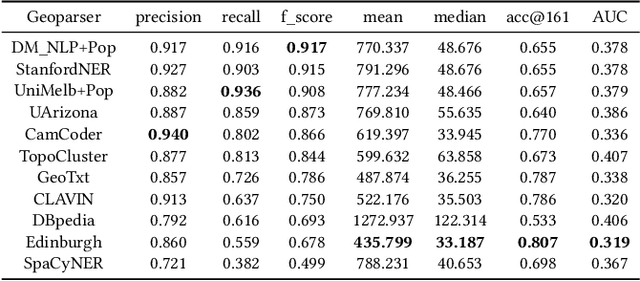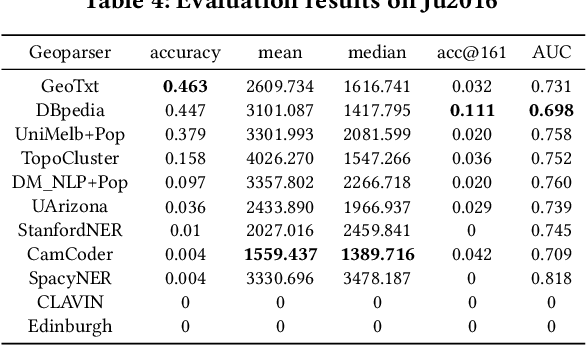Are We There Yet? Evaluating State-of-the-Art Neural Network based Geoparsers Using EUPEG as a Benchmarking Platform
Paper and Code
Jul 15, 2020



Geoparsing is an important task in geographic information retrieval. A geoparsing system, known as a geoparser, takes some texts as the input and outputs the recognized place mentions and their location coordinates. In June 2019, a geoparsing competition, Toponym Resolution in Scientific Papers, was held as one of the SemEval 2019 tasks. The winning teams developed neural network based geoparsers that achieved outstanding performances (over 90% precision, recall, and F1 score for toponym recognition). This exciting result brings the question "are we there yet?", namely have we achieved high enough performances to possibly consider the problem of geoparsing as solved? One limitation of this competition is that the developed geoparsers were tested on only one dataset which has 45 research articles collected from the particular domain of Bio-medicine. It is known that the same geoparser can have very different performances on different datasets. Thus, this work performs a systematic evaluation of these state-of-the-art geoparsers using our recently developed benchmarking platform EUPEG that has eight annotated datasets, nine baseline geoparsers, and eight performance metrics. The evaluation result suggests that these new geoparsers indeed improve the performances of geoparsing on multiple datasets although some challenges remain.
 Add to Chrome
Add to Chrome Add to Firefox
Add to Firefox Add to Edge
Add to Edge